The difference between a single-stage snowblower and a dual-stage snowblower
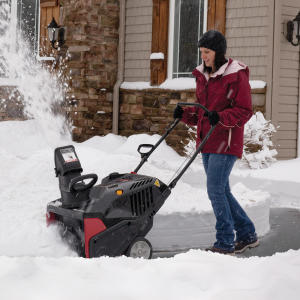

Understanding the difference between a single-stage snowblower and a dual-stage snowblower helps you to determine which snowblower type would be better suited to your needs. We’ve put together some quick facts about how each type of snowblower works.
Single-stage snowblower
A single-stage snowblower removes snow with one motion, using an auger. The auger is usually formed from two or more curved plastic paddles. These paddles pull the snow into the unit and then throw it out through the chute.
The snowblower sits low to the ground and removes snow down to the pavement. A single-stage snowblower is lightweight and easy to maneuver. It is best for clearing paved, moderate-sized driveways with snowfall depths of 10 to 12 inches.
Dual-stage snowblower
A dual-stage snowblower removes snow with two components; a serrated-edge auger blade and a high-speed impeller. The auger cuts through the snow and feeds it to the impeller, which propels the snow away through the chute.
A dual-stage snowblower is slightly raised to allow for use on gravel driveways; as a result, it leaves a thin layer of snow behind. The dual-stage snowblower is larger than a single-stage, making it ideal for deeper snow and larger driveways. It is also self-propelled, making it perfect for use on steep areas.
Symptoms for gas snowblowers
Choose a symptom to see related snowblower repairs.
Things to do: replace the spark plug, change the oil, rebuild the carburetor, adjust valve lash, adjust or replace the b…
Main causes: clogged chute, damaged auger blades, broken shear pins, worn auger belt, damaged gear case, engine problems…
Main causes: dirty carburetor, stale fuel…
Main causes: punctured tire, damaged rim…
Main causes: dirty carburetor, clogged fuel filter, dirty spark plug, incorrect valve lash, leaky engine gaskets…
Main causes: stale gas, clogged carburetor, clogged or broken fuel line, dirty spark plug, bad rewind starter, incorrect…
Main causes: loose drive clutch cable, damaged drive clutch cable, worn friction disc, scraper blade scraping the ground…
Main causes: snow build-up in chute, chute drive mechanism failure, bad chute control assembly…
Main causes: clogged chute, snow build-up in auger housing, broken auger shear pins, auger drive belt needs adjustment, …
Repair guides for gas snowblowers
These step-by-step repair guides will help you safely fix what’s broken on your snowblower.
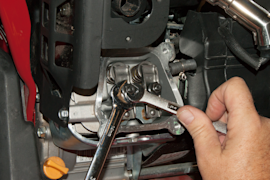
How to adjust snowblower engine valve lash
Adjust the engine valve lash on your snowblower to keep the engine starting and running smoothly.…

How to adjust snowblower skid shoes
To prevent snowblower auger and shave plate damage, adjust the skid shoes regularly to keep the shave plate ¼-inch high.…
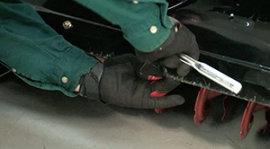
How to replace a snowblower shave plate
Follow the 7 easy steps in this repair guide/video to replace a worn out shave plate on your snowblower.…
Articles and videos for gas snowblowers
Use the advice and tips in these articles and videos to get the most out of your snowblower.
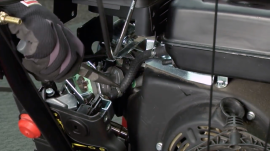
Get an overview of the main steps in a snowblower tune-up and click to videos with more details.…
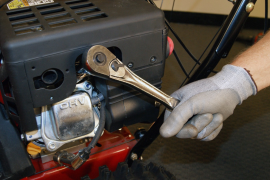
Get your snowblower ready for winter before winter arrives, so you don't have to mess with it while snow piles up.…
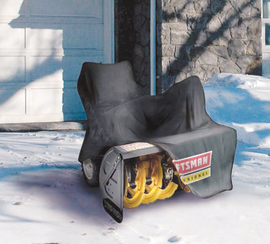
Protect your snowblower's engine and body by preparing it for after-season storage.…